Futures Week 2024
Cultivating futures
May 7 to 9, 2024
Futures Week is an annual event that allows participants to explore the future. This year we are “Cultivating futures.” We will host a range of events to discover possible disruptions on the horizon, confront our ways of thinking about them, and learn how foresight can prepare us for the opportunities and challenges ahead.
Once again, the online portion of Futures Week – on May 7 and 8 – is open to the public. We look forward to welcoming a broad audience of public servants, foresight practitioners, and anyone with a future-focused mindset.
On this page
Who is Policy Horizons Canada
We are a federal government organization that conducts foresight. Our mandate is to help the Government of Canada develop future-oriented policy and programs that are more robust and resilient in the face of disruptive change on the horizon. Visit our website to find out more about our foresight work.
Program
Tuesday, May 7, 2024
- Time (EDT): 10:30 am to 10:45 am
Session: Opening
- Speakers:
- Elder Verna McGregor
- Paul Thompson, Deputy Minister, Employment and Social Development Canada
- Kristel Van der Elst, Director General, Policy Horizons Canada
- Speakers:
- Time (EDT): 10:45 am to 11:35 am
Session: Indigenous futuring: Right relations and futures thinking
Witnessing Indigenous perspectives on the future and how they influence our relationships to work, time, each other and earth.
- Circle Keeper
- Larissa Crawford, Founder and Managing Director, Future Ancestors Services
- Circle members
- Freddie Campbell, Director of Energy and Climate, Indigenous Clean Energy
- Grace Dillon, Professor Indigenous Nations Studies department, Portland State University
- Samantha Matters, Founding Director, Future Ancestors Services
- Circle Keeper
- Time (EDT): 11:35 am to 12:30 pm
Session: Disruptions on the horizon: Events and circumstances Canada may need to prepare for
Exploring insights from Policy Horizons Canada’s Disruptions on the Horizon 2024 report.
- Speakers:
- Catherine Beaudry, Professor, Polytechnique Montréal
- John W. McArthur, Director – Center for Sustainable Development; Senior Fellow – Global Economy and Development, The Brookings Institution
- Bessma Momani, Professor of Political Science, University of Waterloo
- Kristel Van der Elst, Director General, Policy Horizons Canada
- Speakers:
- Time (EDT): 12:30 pm to 1 pm
Session: Lunch Break
- Time (EDT): 1 pm to 1:55 pm
Session: Real versus fake: A sense-making crisis
Examining changes to the ways we think, act, and behave in a world of mis- and dis-information.
- Moderator:
- Chris Beall, Executive Director, Project CONNIE
- Speakers:
- Dennis Matthews, President, Creative Currency
- Nadia Naffi, Assistant Professor of Educational Technology; holder of the Chair in Educational Leadership (CLE) in Innovative Pedagogical Practices in Digital Contexts – National Bank; Université Laval
- Elizabeth Seger, Director of Digital Policy, Demos
- Moderator:
- Time (EDT): 1:55 pm to 2:10 pm
Session: Future Lives Transformed life courses
Exploring how changes in household formation, insurance markets, and youth expectations will impact future life-courses for people in Canada.
- Speakers:
- Simon Robertson, Director, Foresight Research, Policy Horizons Canada
- Nicole Fournier-Sylvester, Foresight Analyst, Policy Horizons Canada
- Tieja Thomas, Manager, Foresight Research, Policy Horizons Canada
- Speakers:
- Time (EDT): 2:10 pm to 2:55 pm
Session: Global demographic shifts: Aging populations and the global economy
Considering the social and economic implications of a rapidly aging global population.
- Moderator:
- Sunil Johal, David and Ann Wilson Professor in Public Policy and Society, Victoria College and University of Toronto
- Speakers:
- Cati Coe, Professor of Political Science, Carleton University
- Przemyslaw Kowalski, Senior Economist, Organisation for Economic Co-operation and Development (OECD)
- Ito Peng, Director of the Centre for Global Social Policy, and Canada Research Chair in Global Social Policy, University of Toronto
- Moderator:
- Time (EDT): 2:55 pm to 3 pm
Session: Day 1 closing remarks
- Speakers:
- Tieja Thomas, Manager, Foresight Research, Policy Horizons Canada
- Speakers:
Wednesday, May 8, 2024
- Time (EDT): 10 am to 10:05 am
Session: Welcome to Day 2
- Speakers:
- Christopher MacLennan, Deputy Minister, Global Affairs Canada
- Simon Robertson, Director, Foresight Research, Policy Horizons Canada
- Speakers:
- Time (EDT): 10:05 am to 10:20 am
Session: Innovations reshaping our society: Emerging technologies
Learning about emerging technologies that might reshape our world.
- Speakers:
- Simon Robertson, Director, Foresight Research, Policy Horizons Canada
- Sabika Zehra, Foresight Analyst, Policy Horizons Canada
- Speakers:
- Time (EDT): 10:20 am to 11:10 am
Session: Foresight on AI: International public sector perspectives
Exploring regional perspectives on the role and impact of AI with public sector foresight leaders from around the world.
- Moderator:
- Kristel Van der Elst, Director General, Policy Horizons Canada
- Speakers:
- Stephen Sanford, Managing Director, U.S. Government Accountability Office
- Liana Tang, Second Director, Smart Nation Strategy Office, Ministry of Communications and Information, Singapore
- Francesca Campolongo, Director for Digital Transformation and Data, European Commission
- Moderator:
- Time (EDT): 11:10 am to 12 pm
Session: Navigating the AI frontier: Uncertainties shaping societies
Gaining insights into factors that could shape the evolution of AI, in terms of technical capabilities, adoption, and use.
- Moderator:
- Suzanne Stein, Associate Professor, Strategic Foresight and Innovation / Digital Futures; Director, Super Ordinary Lab, OCAD University
- Speakers:
- Kay Firth-Butterfield, Chief Executive Officer, Good Tech Advisory LLC
- Sun-ha Hong, Assistant Professor, Simon Fraser University
- Mark Surman, President and Executive Director, Mozilla Foundation
- Moderator:
- Time (EDT): 12 pm to 1 pm
Session: Lunch Break
- Time (EDT): 1 pm to 1:55 pm
Session: AI and the climate crisis: Solution or drain
Considering different perspectives on the interplay between AI and environmental evolutions.
- Moderator:
- Joel Martin, Chief Digital Research Officer & Chief Science Officer, National Research Council Canada
- Speakers:
- Sherif Elsayed-Ali, Co-Founder, Nexus Climate
- Sasha Luccioni, Climate Lead, Hugging Face
- Deval Pandya, Vice President of AI Engineering, Vector Institute
- Moderator:
- Time (EDT): 1:55 pm to 2:50 pm
Session: The commercialization of biological data: DNA for sale
Examining emerging ethical and policy concerns as human biological data is becoming a lucrative commodity that can be bought, sold, and traded.
- Moderator:
- Ryan Philippe, Director, Genome Canada
- Speakers:
- Kayte Spector-Bagdady, Assistant Professor, Obstetrics, Gynecology, University of Michigan Medical School
- Frank Béraud, Chief Executive Officer, Montreal InVivo
- Mahzad Sharifahmadian, Founder, Avancebio
- Moderator:
- Time (EDT): 2:50 pm to 3 pm
Session: Closing remarks
- Speakers:
- Mollie Johnson, Deputy Secretary to the Cabinet (Plans and Consultations), Privy Council Office
- Elder Verna McGregor
- Kristel Van der Elst, Director General, Policy Horizons Canada
- Speakers:
Thursday, May 9, 2024
Federal Foresight Network in-person afternoon in Ottawa
More information available on GCXchange:
First-time users must be logged into their department’s network to complete a one-time registration of your Government of Canada work account. Register for gcxchange.
Returning users can sign in and search for the Federal Foresight Network Futures Week. Futures Week 2024 (sharepoint.com).
Register now to the future week 2004
Speakers
Sherif Elsayed-Ali
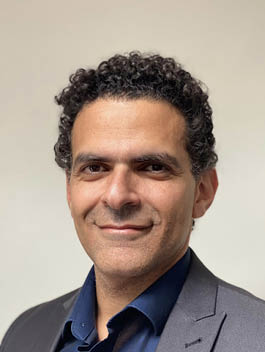
Co-Founder, Nexus Climate
Session: AI and the climate crisis: Solution or drainSherif is co-founder of Nexus Climate, a company working with innovators to create and nurture the best solutions on the planet for the planet. He is a passionate advocate for the potential of AI to enable decarbonization solutions. Previously, Sherif was Co-Founder and CEO of UK-based AI and climate tech company Carbon Re, the first ever joint spin-out of Cambridge University and UCL. He was also Director for AI for Climate at Canadian scale-up Element AI, Co-Founder & Director of Amnesty Tech, a Harvard Kennedy School fellow and a World Economic Forum Global Future Council Chair. Sherif has a BSc in Construction Engineering from the American University in Cairo and an MPA from Harvard University.
Kayte Spector-Bagdady
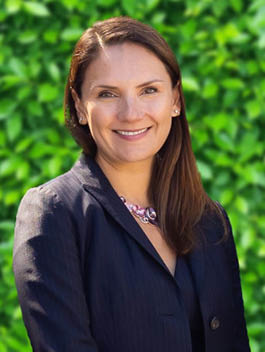
Assistant Professor, Obstetrics, Gynecology, University of Michigan Medical School
Session: The commercialization of biological data: DNA for saleProf. Kayte Spector-Bagdady is health law and bioethics faculty at the University of Michigan Medical School where she also co-leads the Center for Bioethics and Social Sciences in Medicine. She is the Chair of the American Heart Association’s Committee on data collection, sharing, and use and is an Associate Editor of the American Journal of Bioethics. She is the current PI of $3M in NIH funding towards improving the governance of research and AI/ML use of health data, and her recent articles have been published in The New England Journal of Medicine, Science, and JAMA among others. Prof. Spector is a former Associate Director for President Obama’s Bioethics Commission and practicing FDA law attorney.
Chris Beall
Executive Director, Project CONNIE
Session: Real versus fake: A sense-making crisisChris Beall leads Project CONNIE, a new initiative that links the activities of like-minded networks and nodes working to protect the integrity of a free, open and inclusive information environment. Prior to this new project, Chris has led senior-level collaborative projects with civil society, government, and industry stakeholder communities in the information environment. Chris was a senior fellow at the Carnegie Endowment for International Peace where he led a multi-stakeholder crisis response network bringing together civil society, government, and industry partners working to protect the integrity of Ukraine’s information environment. Chris chaired the taxonomy working group for Canada and Latvia’s information integrity cohort at the 2023 Summit for Democracy. Chris created and led the Global Platform Governance Network at the Centre for International Governance Innovation, which brought together civil servants, regulators, and legislative staff from democracies around the world addressing aspects of digital platform governance. Chris previously held leadership positions in the Government of Canada, building citizen resilience to disinformation, aligning security, trade and immigration policy, strategic finance, and management oversight. Chris holds a doctorate from the University of Oxford.
Catherine Beaudry
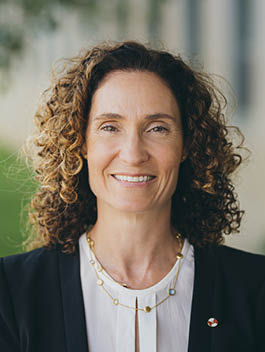
Full professor, Polytechnique Montréal
Session: Disruptions on the horizon: Events and circumstances Canada may need to prepare forA graduate in electrical engineering from Polytechnique Montreal and a graduate in economics from the University of Oxford (master’s and doctorate), Catherine Beaudry is currently a full professor in the Department of Mathematics and Industrial Engineering at Polytechnique Montreal. Professor Beaudry also holds a tier 1 Canada Research Chair in management and economics of innovation in addition to leading the Partnership for the Organization of Innovation and New Technologies (4POINT0). She is a member of the CIRST, a fellow and main researcher of CIRANO. She is a Fellow of the Academy of Social Sciences of the Royal Society of Canada and has been awarded the Prix Acfas Jacques-Rousseau 2022 and the CSPC Trailblazer Award for Innovation Policy in 2023.
Professor Beaudry specialises in the economics of innovation and its impact on business performance, as well as in the evaluation of research and the science and technology system. Her main research interests are collaboration and support mechanisms for public and private organisations within knowledge and innovation ecosystems. His research aims to create multi-level (organisations-ecosystem-society) analysis models and indicators on which governance and public policies specific to innovation ecosystems can be based. Its multidisciplinary work considers the science, technology and innovation system as a whole, thereby decompartmentalising the innovation process.
Frank Béraud
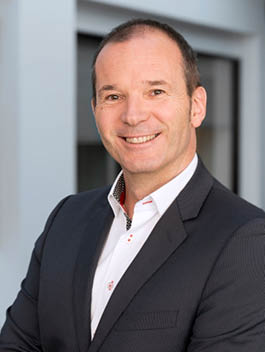
Chief Executive Officer, Montréal InVivo
Session: The commercialization of biological data: DNA for saleHolding more than 25 years of experience in the life sciences sector, Mr. Béraud has particularly acquired a solid expertise in business development. With a background in sales and marketing within multinationals in the field of clinical diagnostics, his career path has led him to assume responsibility for business development for an SME in the domain of biotechnology, in addition to working as a consultant within the industry as well as a technology transfer organization. Mr. Béraud has also worked on managing the policies and strategic development of an industrial association in the life sciences sector before joining Montréal InVivo’s team. Highly socially engaged in education, the health and homelessness, he currently chairs the board of directors of the charitable organization Computing for Humanity, which aims to provide leading researchers with the computing power of refurbished supercomputers. Mr. Béraud is also a board member of the Memphrémagog hospital Foundation.
Kay Firth-Butterfield
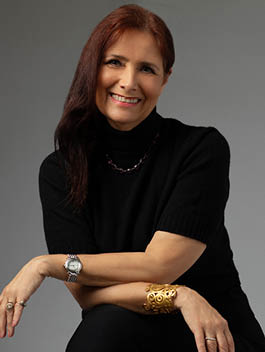
Chief Executive Officer, Good Tech Advisory LLC
Session: Navigating the AI frontier: Uncertainties shaping societiesKay Firth-Butterfield is the CEO of Good Tech Advisory. TIME 100 Impact Awardee 2024. She is the former Head of Artificial Intelligence and member of the Executive Committee at the World Economic Forum and is one of the foremost experts in the world on the governance of AI. She is a Barrister, former Judge and Professor, technologist and entrepreneur who has an abiding interest in how humanity can equitably benefit from new technologies, especially AI. She was the world’s first Chief AI Ethics officer. Kay is author of books on Human Rights, AI and Modern Slavery and is a board member of many renowned organizations like The IEEE Global Initiative for Ethical Considerations in AI and Autonomous Systems, the Polaris Council for the Government Accountability Office (USA), the Advisory Board for UNESCO International Research Centre on AI, the Advisory Board for international company ADI, EarthSpecies and AI4All. She has been consistently recognized as a leading woman in AI.
Freddie Campbell
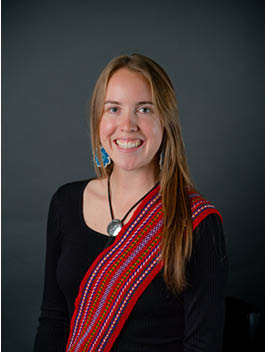
Director of Energy and Climate, Indigenous Clean Energy
Session: Indigenous futuring: Right relations and futures thinkingFreddie Huppé Campbell (she/they) is a Michif Two-Spirit human, urban raised on Ktunaxa territories. They are an artist, a relation, an unlearner and relearner and an intersector. Freddie is the Director of the Energy and Climate team at Indigenous Clean Energy where she works to support community-led energy sovereignty and futures on national and global scales. They hope to learn from past and present teachings and ground everything they do in community and all their relations.
Francesca Campolongo
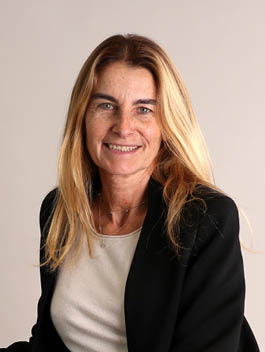
Director for Digital Transformation and Data, European Commission
Session: Foresight on AI: International public sector perspectivesFrancesca Campolongo serves as the Director for Digital Transformation and Data at the European Commission, Joint Research Centre since September 2023. In her role, she is in charge for providing scientific knowledge on digital technologies such as Artificial Intelligence and cybersecurity to the European Commission. She also oversees the Digital Governance of the Joint Research Centre.
Ms. Campolongo has been with the JRC since 1998, previously serving as the Deputy Director for the Fair and Sustainable Economy. During this time, she led the unit dedicated to Economic and Financial Resilience for over a decade.
With a background in mathematics, Ms. Campolongo earned her degree from Pisa University, Italy, and went on to obtain a PhD in modelling and sensitivity analysis from Griffith University, Australia.
Cati Coe
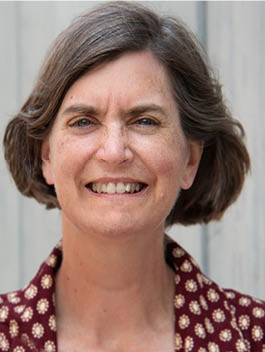
Professor of Political Science, Carleton University
Session: Global demographic shifts: Aging populations and the global economyCati Coe is the Canada Research Chair in Migration and Care and Professor of Political Science at Carleton University. Dr. Coe is an internationally recognized leader in the scholarship of transnational families, aging, and care work, with a focus on West Africa and North America. Her most recent book is Changes in Care: Aging, Migration, and Social Class in West Africa (2021), which won the 2022 Toyin Falola Africa Book award. She is currently beginning a new project on how transnational migrants navigate national forms of social protection in later life.
Larissa Crawford

Founder and Managing Director, Future Ancestors Services
Session: Indigenous futuring: Right relations and futures thinkingLarissa Crawford proudly passes on Métis and Jamaican ancestry to her daughter, Zyra, and is a published Indigenous, anti-racism, and climate justice researcher, policy advisor, and restorative circle keeper with 15 years of experience. Larissa is the Founder of Future Ancestors Services, a youth-led professional services social enterprise that operates at the intersection of climate and racial justice.
Grace Dillon

Professor Indigenous Nations Studies department, Portland State University
Session: Indigenous futuring: Right relations and futures thinkingGrace L. Dillon (Anishinaabe) is Professor in the Indigenous Nations Studies Department in the School of Gender, Race, and Nations and also Affiliated Professor at English and Women, Gender, and Sexualities Departments at Portland State University in Portland, Oregon. She teaches undergraduate and graduate courses on a range of interests including Indigenous Futurisms, Indigenous Speculative Fiction, Queer Indigenous and Indigenous LGBTQAI2s+ Theory, Gender, Race, and Nations Theories and Methodologies courses, Climate and Environmental Justice(s) from Indigenous Perspectives, Science Fiction, Indigenous Cinema, Popular Culture, Race and Social Justice, and early modern literature.
She is the Indigenous Futurisms section Editor along with Editors Isiah Lavender III, Taryne Taylor, and Bodhisattva Chattopadhyay of The Routledge Handbook of CoFuturisms including areas such as Afrofuturism, African Futurisms, Indigenous Futurisms, Latinx Futurisms, Asian Futurisms, Gulf Futurisms and BIPOC Queer and (Dis) ability Futurisms, published October 30, 2023.
Chris Hagerman
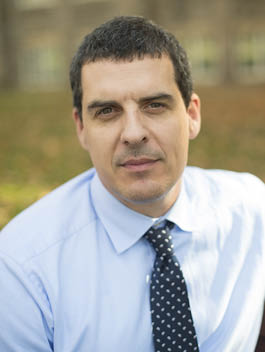
Foresight Analyst, Policy Horizons Canada
Session: Future Lives: Transformed life coursesChris Hagerman is a senior policy analyst with Policy Horizons. He joined the public service in 2018 after two decades as an academic specializing in ancient and modern imperialism. During his time at Policy Horizons, Chris has led the Future of sense-making project and the development of our new line of foresight briefs. In his spare time, Chris writes, restores wooden canoes, makes paddles, and cooks for his family.
Sun-ha Hong

Assistant Professor, Simon Fraser University
Session: Navigating the AI frontier: Uncertainties shaping societiesSun-ha Hong examines forms of uncertainty, doubt and (dis)belief around surveillance, smart machines & AI from critical and historical perspectives. He is Assistant Professor in Communication at Simon Fraser University, Canada, and was previously Mellon Postdoctoral Fellow in the Humanities at MIT. Sun-ha is the author of Technologies of Speculation: The Limits of Knowledge in a Data-Driven Society (2020), and is working on his next book, Predictions Without Futures.
Sunil Johal
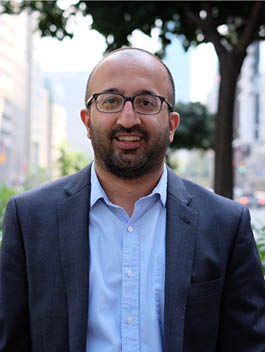
David and Ann Wilson Professor in Public Policy and Society, Victoria College and University of Toronto
Session: Global demographic shifts: Aging populations and the global economySunil Johal is the David and Ann Wilson Professor in Public Policy and Society at Victoria College, University of Toronto. He has held senior executive and policy roles at all levels of government. In 2021 he led transition activities for Employment and Social Development Canada in an Assistant Deputy Minister-level role.
Previously, Sunil was Policy Director at the University of Toronto’s Mowat Centre from 2012 to 2019, where he established himself as a thought leader on issues such as the future of work. In 2019 he chaired the Expert Panel on Modern Labour Standards for the federal Minister of Labour. He is currently Vice-Chair of an expert panel advising the Ontario government on the development of a portable benefits scheme for non-standard workers.
He is a Fellow at the Public Policy Forum and serves as the Vice President of Public Policy at the CSA Group where he's leading a new think tank. He has contributed expert commentary and advice to a range of organizations and media outlets, including the G-20, World Economic Forum and the Organisation for Economic Co-operation and Development.
Mollie Johnson
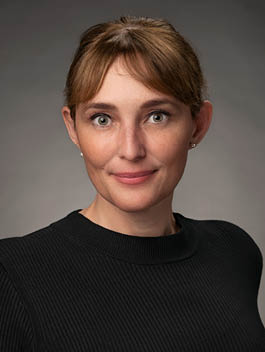
Deputy Secretary to the Cabinet (Plans and Consultations), Privy Council Office
Session: Closing RemarksMollie Johnson was appointed Deputy Secretary to the Cabinet (Plans and Consultations) at the Privy Council Office in July of 2023.
Prior to her appointment, Mollie served as Associate Deputy Minister at Natural Resources Canada (NRCan) where she played a key role in the Government of Canada’s commitment to building a prosperous, inclusive energy and resource sector that is at the centre of our country’s efforts to transition to a net-zero Economy.
Mollie held several positions as Assistant Deputy Minister at NRCan. She headed-up the Energy Systems Sector (ESS) and Low Carbon Energy Sector (LCES), to help catalyze the economic opportunities of the energy transition, drive governance across the department’s energy teams, and provide the Deputy Minister and the Minister with integrated decision-making on energy issues.
Mollie was previously Assistant Deputy Minister, Communications and Portfolio Sector; and, Director General, Policy, Major Projects Management Office, both at Natural Resources Canada. She has also held executive positions at Environment and Climate Change Canada and Canada’s Competition Bureau.
She holds a Bachelor of Arts in Political Science from the University of Western Ontario, and a Master’s Degree in International Affairs from Carleton University’s Norman Paterson School.
Przemyslaw Kowalski

Senior Economist, Organisation for Economic Co-operation and Development (OECD)
Session: Global demographic shifts: Aging populations and the global economyPrzemyslaw Kowalski is Senior Economist in the Analysis, Data and Modelling Division of the OECD Trade and Agriculture Directorate of the OECD. Prior to this position, he was President of the Management Board of the Centre for Social and Economic Research (CASE), in Warsaw, Poland and has served as Economist and Senior Economist in the Trade and Agriculture Directorate and Economics Department. His previous roles include also Visiting Lecturer at Institut d’Études Politiques de Paris (Sciences Po), Paris, Research and Teaching Assistant at University of Sussex, Brighton, United Kingdom, Consultant at Economist Intelligence Unit, London, United Kingdom, Research Assistant at Centre for Economic Policy Research, London, UK. He holds a PhD in Economics and a Master of Arts in International Economics from the University of Sussex, UK, and Master of Science in Economics from the University of Warsaw, Poland.
Sasha Luccioni
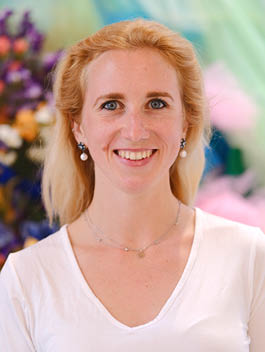
Climate Lead, Hugging Face
Session: AI and the climate crisis: Solution or drainDr. Sasha Luccioni is a leading scientist at the nexus of artificial intelligence, ethics, and sustainability, with a PhD in AI and a decade of research and industry expertise. She is the AI & Climate Lead at Hugging Face, a global startup in responsible open-source AI, where she spearheads research, consulting and capacity-building to elevate the sustainability of AI systems. A founding member of Climate Change AI (CCAI) and a board member of Women in Machine Learning (WiML), Sasha is passionate about catalyzing impactful change, organizing events and serving as a mentor to under-represented minorities within the AI community.
Christopher MacLennan
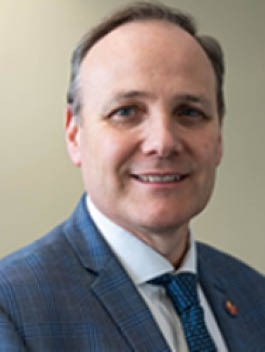
Deputy Minister, Global Affairs Canada
Session: Welcome to Day 2On January 5, 2022, Prime Minister Justin Trudeau appointed Christopher MacLennan as deputy minister of international development.
Prior to this role, Mr. MacLennan was the associate deputy minister of foreign affairs and the personal representative of the prime minister for the G20 Summit. He continues to be the personal representative of the prime minister for the G20 Summit.
Previously, as assistant deputy minister (ADM) for global issues and development at Global Affairs Canada, Mr. MacLennan led Canada’s international development assistance efforts through multilateral and global partners, humanitarian assistance and priority foreign policy relationships with the United Nations, the Commonwealth and La Francophonie. In addition to this role, he served concurrently as Canada’s G7 foreign affairs sous-sherpa.
Prior to these roles, Mr. MacLennan was acting assistant secretary to the Cabinet for priorities and planning and ADM of policy innovation at the Privy Council Office; and before this, Mr. MacLennan was director general for health and nutrition at Foreign Affairs, Trade and Development Canada and led the team that organized the prime minister’s international summit, Saving Every Woman, Every Child:
Within Arm’s Reach, which addressed maternal, newborn and child health, in 2014. This work had followed his previous role in the G8 Muskoka Initiative on maternal, newborn and child health in 2010. Before these roles, Mr. MacLennan had worked in various capacities at the Canadian International Development Agency, Environment Canada and Human Resources and Skills Development Canada.
Mr. MacLennan holds a Ph.D. from Western University specializing in constitutional development and international human rights. From 2012 to 2013, he was a Fulbright Visiting Scholar at Stanford University’s Center on Democracy, Development and the Rule of Law. Mr. MacLennan has written numerous publications, including Toward the Charter: Canadians and the Demand for a National Bill of Rights, 1929–1960.
Samantha Matters

Founding Director, Future Ancestors Services
Session: Indigenous futuring: Right relations and futures thinkingSamantha is an accomplished academic, published researcher, and foresight strategist. Sam carries both Métis and mixed settler ancestry. She is one of the Founding Directors of Future Ancestors Services, a Next Generation Foresight Practitioner Fellow, and a Future of Canada Project Fellow. In her futures work, Sam explores possible futures through the lens of Indigenous futurism, ancestry, and equity.
Dennis Matthews
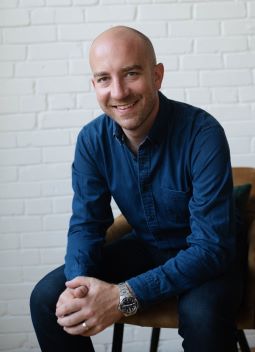
President, Creative Currency
Session: Real versus fake: A sense-making crisisDennis Matthews is the President of Creative Currency, an advertising agency and content studio in Toronto. Dennis leads a team that works with major leaders, brands and causes to tell their story and move public opinion. He was an advertising advisor to Prime Minister Stephen Harper, a veteran of numerous political campaigns, and remains a frequent media commentator on advertising, digital and political issues. He was recently recognized as an Adweek Magazine Toronto Brand Star and is a member of the Board of Directors of Destination Ontario and the Marketing and Communications Committee of the Michael Garron Hospital. Dennis is also a partner at Enterprise Canada, a national strategic communication firm.
Joel Martin
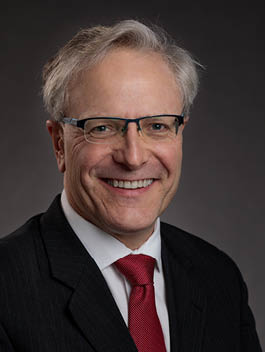
Chief Digital Research Officer & Chief Science Officer, National Research Council Canada
Session: AI and the climate crisis: Solution or drainDr. Joel Martin is the NRC's Chief Digital Research Officer and Chief Science Officer. He holds a Ph.D. in Computer Science, Machine Learning, from the Georgia Institute of Technology and completed post doctoral studies at the University of Pittsburgh.
Since joining the NRC in 1994, he has been a researcher and served in multiple leadership roles in the Digital Technologies Research Centre. Under his leadership, the Research Centre has created digital technologies to detect disease outbreaks, some of which are now used worldwide, and digital technologies that promote Indigenous languages in Canada. In addition, Dr. Martin has established research and development programs drawing interest and collaboration from universities and other government departments. These initiatives include the NRC's Data Analytics Centre, the Multimedia Analytic Tools for Security program, and the AI for Design Challenge program. They have increased both scientific output and impact of the NRC's Digital Technologies Research Centre.
John W. McArthur
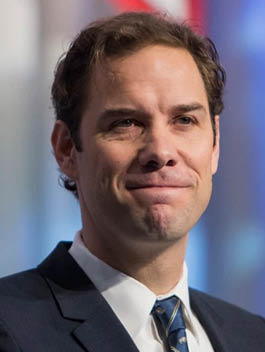
Director – Center for Sustainable Development; Senior Fellow – Global Economy and Development, The Brookings Institution
Session: Disruptions on the horizon: Events and circumstances Canada may need to prepare forJohn W. McArthur is senior fellow and director of the Center for Sustainable Development at the Brookings Institution. He co-founded and co-chairs the 17 Rooms initiative, a new approach to catalyzing action for the Sustainable Development Goals. Outside of Brookings, he is also a senior adviser to the United Nations Foundation, a member of Policy Horizons Canada’s Deputy Minister Steering Committee, and a member of the Novata ESG Advisory Council.
He was previously the chief executive officer of Millennium Promise Alliance, the international nongovernmental organization. Prior to that he served as the manager and then deputy director of the U.N. Millennium Project, Secretary-General Kofi Annan’s independent advisory body mandated to recommend an action plan for achieving the Millennium Development Goals.
McArthur grew up in Vancouver and is a Canadian citizen. He completed a Bachelor of Arts (Honors) at the University of British Columbia; a Master’s in Public Policy at Harvard’s John F. Kennedy School of Government; and then an M.Phil. and D.Phil. (Ph.D.) in economics at Oxford University, which he attended as a Rhodes Scholar.
Elder Verna McGregor

Session: Opening, Closing Remarks
Elder Verna McGregor is from the Algonquin community of Kitigan Zibi Anishinabeg, which is approximately 120 kilometres north of Ottawa. Ottawa is part of the Algonquin Nation’s traditional lands. Verna works at Minwaashin Lodge, the Aboriginal Women’s Support Centre located in Ottawa. Services and resources provided by Minwaashin Lodge assist in the empowerment of Aboriginal women leaving violence.
Verna has remained firmly grounded in her community and nation by also being part of groups of traditional grandmothers (kokomisag) and Elders. This includes promoting the retention of the Algonquin language and culture, which is so important when addressing issues and ensuring a connection to the land.
Bessma Momani
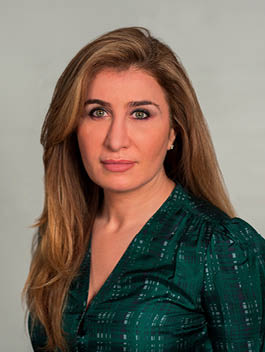
Associate Vice President and Professor, University of Waterloo
Session: Disruptions on the horizon: Events and circumstances Canada may need to prepare forDr. Bessma Momani is Associate Vice-President, International and Full Professor in the Department of Political Science at the University of Waterloo. She is also a senior fellow at the Centre for International Governance Innovation and non-resident fellow at the Arab Gulf States’ Institute in Washington, DC, and a Fulbright Scholar. She is a Governor on the board of the International Development Research Centre and advisory board member of the Canadian International Council.
Nadia Naffi
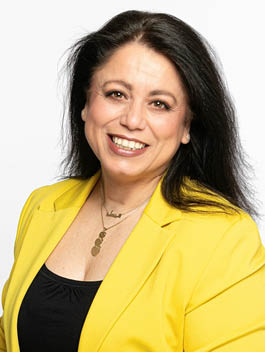
Assistant Professor of Educational Technology; holder of the Chair in Educational Leadership (CLE) in Innovative Pedagogical Practices in Digital Contexts – National Bank; Université Laval
Session: Real versus fake: A sense-making crisisDr. Nadia Naffi is an Assistant Professor of Educational Technology at the Faculty of Education and holds the National Bank Chair in Educational Leadership for Innovative Pedagogical Practices in Digital Contexts at Université Laval. She co-leads the Education and Empowerment research theme at the International Observatory on the Societal Impacts of AI and Digital Technology (OBVIA). Her doctorate in educational technology explored the dynamics of hate, fear, and prejudice spreading through social media and resulted in the development of a model to educate youth on countering social media propaganda. Supported by prestigious grants, her foundational work laid the groundwork for her subsequent research into deepfakes and digital disinformation, focusing on how education can empower youth to develop resilience and agency against such threats. Her leadership role at OBVIA underscores her commitment to addressing the pressing issues of our digital era and harnessing technology for societal good. Looking ahead, Dr. Naffi plans to broaden her research to include vulnerable groups, particularly the elderly, who are increasingly targeted by disinformation campaigns. Her efforts are a response to the global need for targeted educational interventions alongside legal and technological solutions to ensure a safer digital future, aligning with global movements and legislative actions.
Deval Pandya
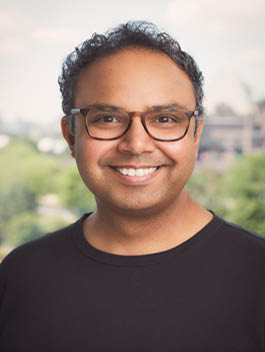
Vice President of AI Engineering, Vector Institute
Session: AI and the climate crisis: Solution or drainDr. Deval Pandya is a recognized leader in AI and applications in energy transition and climate.He is the Vice-President and Head of AI Engineering at the Vector Institute, where he works in enabling, amplifying and applying AI breakthroughs. He holds an expert positions at the UN Economic Commission of Europe – Task Force for Digitalization in Energy, and is Technical Steering Committee Director at Moja Global, he is passionate about innovation and advises multiple startups as well as serves as Investigator in Climate and Energy Stream of Creative Destruction Lab. Previously, he was founding members of Data Science CoE and Data Science Lead for Assets and New Energies at Shell. His recognitions include Future Energy Leader by World Energy council, Peak’s emerging leader in Canada and one of the Top 100 Global AI innovators by World Summit AI.
Deval received his MS and PhD from the University of Texas at Arlington and holds a Bachelor of Engineering degree in Mechanical Engineering from Sardar Patel University.
Ito Peng

Director of the Centre for Global Social Policy, and Canada Research Chair in Global Social Policy, University of Toronto
Session: Global demographic shifts: Aging populations and the global economyIto Peng is the Canada Research Chair in Global Social Policy and the Director of the Centre for Global Social Policy at the Department of Sociology, and the Munk School of Global Affairs and Public Policy at the University of Toronto. She is a leading researcher and expert in global social policy and political economy, specializing in the care economy, and family, gender, migration, and climate change policies, and a fellow of the Royal Society of Canada. She currently leads two international projects: 1) Care Economies in Context: towards sustainable social and economic development, a global partnership research project that investigates care infrastructures in 9 countries in 5 global regions and uses that data to develop gender-sensitive macroeconomic models of care economies in these countries to help inform key social, economic and political actors to develop better and more effective policies and programs; and 2) Care and Climate Change Policies project aimed to compile a package of policy briefs on different dimensions of care and climate change. She is a distinguished fellow of the Asia Pacific Foundation of Canada and currently serves as a thought leader for the foundation's Women’s Business Missions to Asia Pacific initiative. She was a co-lead for the Room 5 for the Rockefeller Foundation-Brookings Institute’s 17-Rooms Global Flagship project (2021-2023).
Ryan Philippe

Director, Strategic Partnerships and Innovation
Session: The commercialization of biological data: DNA for saleWith bioscience innovation leadership experience in the academic, non-profit, and for-profit sectors, Ryan is passionate about creating and supporting effective and impactful collaborative research and development projects.
He previously served as Director of Research, Innovation, and Partnerships at Manus Bio, a groundbreaking industrial biomanufacturing company that is reshaping the carbon equation to produce complex, high-value natural products.
As Director of Strategic Partnerships and Innovation at Genome Canada, he works with other leaders to create partnerships in the biotechnology research, innovation, and commercialization ecosystem that support and position Canadian researchers to help them realize the value made possible by public investment in our shared vision.
Dr. Philippe is privileged to serve his country in shaping innovative and economically resilient healthcare, agri-food, biotechnology, and environmental protection systems in Canada, to help build a sustainable future for generations to come.
Simon Robertson
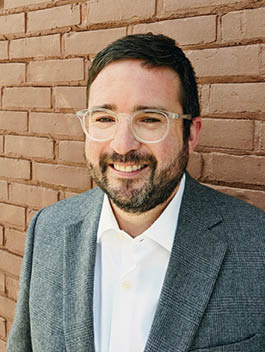
Director, Foresight Research, Policy Horizons Canada
Session: Innovations reshaping our society: Emerging technologiesSimon Robertson is Director of foresight research at Policy Horizons Canada. He oversees a wide range of foresight work and research analysts, as they use foresight to help the federal government build stronger policies and programs in the face of an uncertain future. He previously led the organization's Social Foresight team, where he led work on topics including the Future of Sense Making, Social Connection, and the Future Lives project. Prior to joining the public service, he was a lawyer at a major Canadian law firm, and a senior political and policy advisor. A Francophone from Vancouver, Simon also holds a master’s degree in international relations from the University of Cambridge.
Stephen Sanford

Managing Director, U.S. Government Accountability Office
Session: Foresight on AI: International public sector perspectivesStephen Sanford is Managing Director for Strategic Planning and External Liaison at the Government Accountability Office (GAO) in Washington, DC. In this role, he reports directly to the Comptroller General of the United States. GAO is an independent, non-partisan agency that provides the U.S. Congress and government agencies with objective, fact-based information to help the U.S. federal government save money and work more efficiently and effectively.
He oversees the activities of the GAO Center for Audit Excellence and the GAO Center for Strategic Foresight. He is also responsible for helping GAO plan for the future, build external relations with domestic and international partners, and drive agency-wide innovation and transformation.
Stephen joined GAO in 2009. Since then, he has led efforts to develop 3 agency strategic plans, supported GAO's bilateral and multilateral international relations with national governments and international organizations, facilitated GAO's cooperation with the accountability community, and led GAO's first technology assessment on artificial intelligence. In 2021, he partnered with GAO’s Chief Data Scientist to produce the first-ever accountability framework for artificial intelligence in the U.S. federal government. In recognition of his work, he has received a GAO Distinguished Service Award and a GAO Meritorious Service Award.
Prior to GAO, he advised executives on technology and business process improvement at multinational firms in London, Paris, and Brussels. He was also responsible for science and technology policy issues at the U.S. Embassy in Moscow, working closely with the White House, the U.S. Department of Commerce, and the Department of Energy.
He earned a bachelor’s degree (BA) in English from the University of Pennsylvania and a master’s degree in business administration (MBA) with distinction from INSEAD in France.
Elizabeth Seger
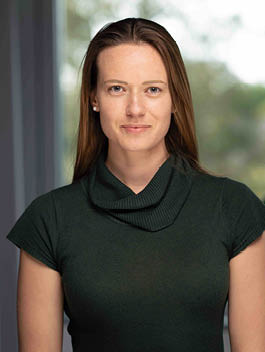
Director of Digital Policy, Demos
Session: Real versus fake: A sense-making crisisElizabeth is Director of CASM, Demos’ digital policy research hub. Previously, Elizabeth worked as a policy researcher at the Centre for the Governance of AI in Oxford where she led projects on open-source model sharing strategy, democratisation of AI, and the impacts of emerging technology on democracy. Her work is internationally recognized, helping set the stage for international debates on AI policy including with OECD working group on AI and around the UK’s AI Safety Summit and the Biden Administration’s Executive Order on Safe and Trustworthy AI. Elizabeth holds a PhD in Philosophy of Technology from the University of Cambridge.
Mahzad Sharifahmadian
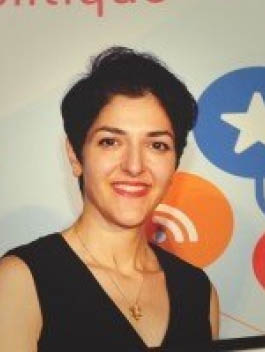
Founder, Avancebio
Session: The commercialization of biological data: DNA for saleMahzad is the biotech stream advisor of District 3 Innovation Centre, Concordia University's centre for innovation and entrepreneurship. She is the founder of Avancebio, an innovation network for accelerating bioeconomy and sustainability. Mahzad holds a PhD in Biochemistry and Molecular Medicine from Université de Montréal, with expertise and publications in the design and development of novel drugs for antibiotic-resistant infections. While completing her PhD, she co-founded Rubisco, a biotech company offering point-of-care pathogen diagnosis (dissolved in 2018). She has advised over 50 startups and university spinoffs. Mahzad was nationally selected by the Canadian Science Policy Centre for the Award of Excellence in 2019.
Suzanne Stein
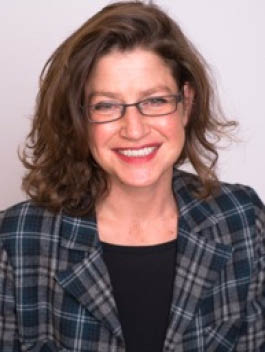
Associate Professor, Strategic Foresight and Innovation / Digital Futures; Director, Super Ordinary Lab, OCAD University
Session: Navigating the AI frontier: Uncertainties shaping societiesStein is a Foresight Analyst, Mentor, and Educator. She is the Graduate Program Director for OCAD University’s Strategic Foresight and Innovation Master’s Program and Director of the Super Ordinary Laboratory. In 2009, she was founding faculty for both the Digital Futures programs and the Strategic Foresight and Innovation graduate programs. Previous roles include Deputy Director and Principal Research Fellow in Technology Futures at SMARTlab (United Kingdom) and lead in Nokia Corporate Strategy’s Insight and Foresight group. Earlier work included Sapient Corporation, as Discipline Lead for the Experience Modeling (XMod) group in London, and Director of the User Experience Group.
Mark Surman
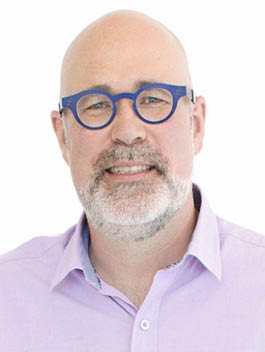
President and Executive Director, Mozilla Foundation
Session: Navigating the AI frontier: Uncertainties shaping societiesMark is the President of The Mozilla Foundation, a global nonprofit that does everything from making Firefox to advocate for a more open, equitable internet. Mark’s current focus is Mozilla’s efforts to invest in responsible tech startups (Mozilla Ventures) and create foundational tech for more trustworthy AI (Mozilla.ai). Prior to Mozilla, Mark spent 15 years leading organizations and projects promoting the use of the internet and open source for social empowerment. Mark lives in Toronto with his sons, Tristan and Ethan.
Nicole Fournier-Sylvester
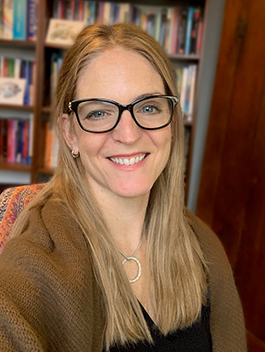
Foresight Analyst, Policy Horizons Canada
Session: Future Lives: Transformed life coursesNicole Fournier-Sylvester is a foresight analyst at Policy Horizons Canada. She has worked on research projects including geotechnomics and the future of basic needs as well as Futures Week. Prior to joining the public service, Nicole worked as a researcher, consultant and program manager for the Global Centre for Pluralism, UNESCO, and Project Someone. She has a PhD in education and her courses and publications focus on global citizenship, digital literacy, critical thinking, and dialogue-based pedagogies.
Liana Tang

Second Director, Smart Nation Strategy Office, Ministry of Communications and Information, Singapore
Session: Foresight on AI: International public sector perspectivesLiana Tang is Second Director of Smart Nation Strategy Office, Ministry of Communications and Information. Having served for over 15 years in the Singapore Public Service, her experience spans policy, planning, communications, and engagement across various domains such as culture, heritage, digital, and population policies. Her current role covers Futures and Strategy in the digital domain, exploring the emerging issues and plausible futures in digital, translating insights into strategy to inform and transform Singapore’s Smart Nation ambitions. This role follows a five-year term at the Centre for Strategic Futures where she served as Deputy Head, leading various foresight programmes such as the National Scenarios exercise. A biologist by training, her academic and policy interests lie in the intersections of technology and society.
Tieja Thomas
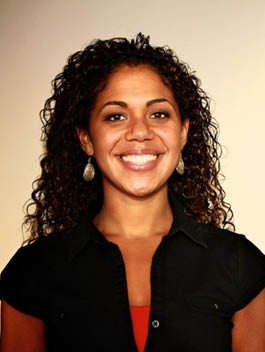
Manager, Foresight Research, Policy Horizons Canada
Session: Futures Lives: Transformed life coursesTieja Thomas is a Manager of Foresight Research at Policy Horizons Canada. During her time with the organization, she had led the Future Lives project and supported teams’ work on several other foresight topics. Prior to joining the government, she worked as a researcher for academic and non-governmental organizations. She has a PhD in education and has taught courses in quantitative and qualitative research methods.
Paul Thompson
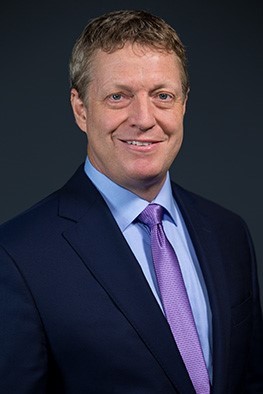
Deputy Minister, Employment and Social Development Canada
Session: OpeningPaul Thompson was appointed Deputy Minister of Employment and Social Development on September 18, 2023. Previously, he served as Deputy Minister of Public Services and Procurement, beginning in January 2022, and as Associate Deputy Minister at Innovation, Science and Economic Development Canada, starting in November 2017.
Prior to these roles, Paul has held several senior executive positions at Employment and Social Development Canada, such as Senior Assistant Deputy Minister for the Skills and Employment Branch, as well as executive positions in various departments, including the Privy Council Office, Fisheries and Oceans Canada and the Treasury Board of Canada Secretariat.
Paul holds a Master of Arts degree in economics from Queen’s University and a bachelor of arts degree in economics and political science from the University of Toronto. He is a father of three and enjoys a wide range of outdoor activities.
Kristel Van der Elst
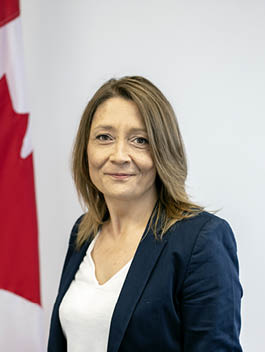
Director General, Policy Horizons Canada
Session: Opening, Foresight from around the world: Public sector perspectives, Geotechnomics: The strategic interplay of geopolitics, technology, and economics, ClosingKristel is the Director General at Policy Horizons Canada, Government of Canada. She is former Head of Strategic Foresight at the World Economic Forum. Kristel holds 3 Masters including an MBA from the Yale School of Management. She is a Fulbright Scholar and a Rotary Foundation Ambassadorial Scholar.
Sabika Zehra
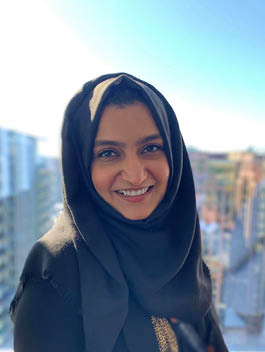
Policy Analyst, Policy Horizons Canada
Session: Innovations reshaping our society: Emerging technologiesSabika is a public policy professional working at the intersection of foresight, economics, and social policy. Prior to joining the government, she helped organizations operating in hostile and uncertain environments to design resilient policies and programs for youth development. Having lived, studied, and worked in nine different countries, she values a diversity of thoughts and perspectives. An idealist at heart, she believes in the power of collaboration to solve wicked problems.
Code of conduct
As we host this event and its interactions online, each of us must follow a code of conduct and play a role in supporting a safe space for conversation.
Please be kind and thoughtful when sharing comments and questions.
We expect attendees and speakers to:
- be professional and respectful at all times
- use encouraging and helpful language when participating in discussions or debates, avoiding negative or condescending tones
- be respectful in the chat, and comment without being defensive, rude, or sarcastic
- keep your questions clear and concise
Note: We reserve the right to remove comments and to block users who:
- share protected or classified Government of Canada information
- infringe upon intellectual property or proprietary rights
- act in a manner contrary to the principles of the Canadian Charter of Rights and Freedoms, Constitution Act
- post racist, hateful, sexist, homophobic or defamatory comments, or comments that contain or refer to any obscenity or pornography
- post comments containing dis- or mis-information
- comment in a threatening, violent, intimidating, or harassing manner
- behave in a manner contrary to any federal, provincial, or territorial laws of Canada
- post promotions, advertising, or spam, or
- encourage or incite any criminal activity
Contact us
Questions about the event?